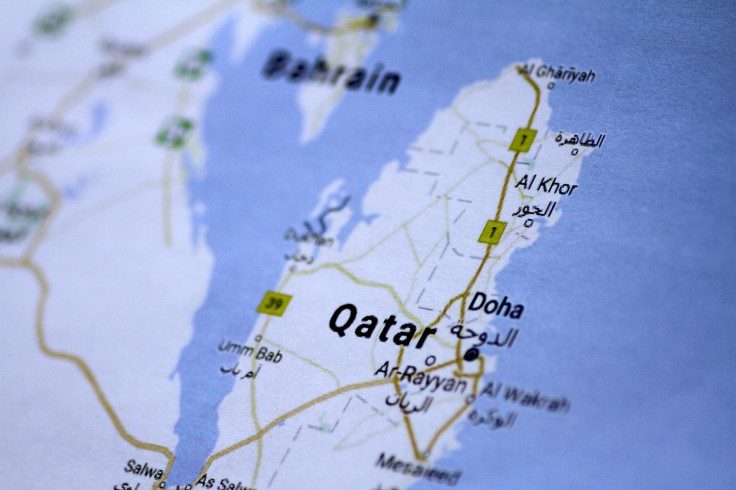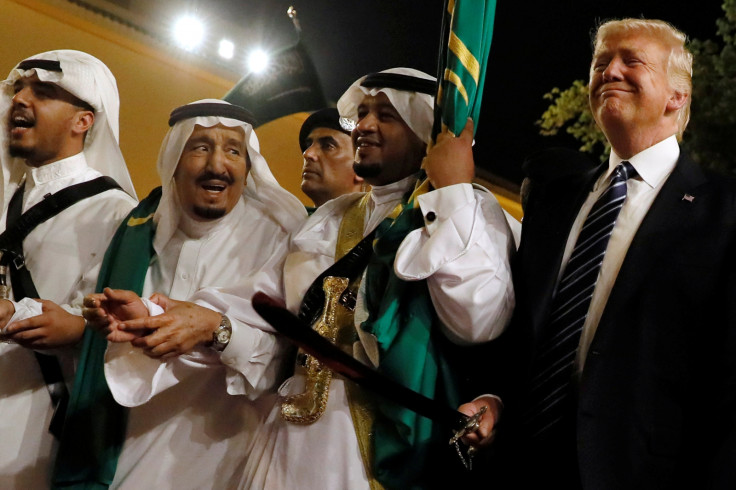How Donald Trump helped cause the Qatar diplomatic crisis
President Trump's arms deal with Saudi Arabia was "instrumental" in the re-emergence of the crisis.

US President Donald Trump's recent endorsement of Saudi Arabia's bid to challenge Iranian influence in the Middle East sparked the re-emergence of a diplomatic row between Qatar and its neighbours, a Gulf security expert has revealed.
Six Arab nations severed relations with the Qatari government on Monday (5 June) after accusing Doha of fuelling extremism and terrorism in the region and its perceived tolerance of Saudi Arabia's arch-rival, Iran.
Egypt, Bahrain, Saudi Arabia, the United Arab Emirates (UAE) and the Western-recognised governments of Libya and Yemen cut ties with Doha, claiming its government funds regional terrorist networks.
Saudi state news agency SPA said Riyadh had closed its borders and suspended all contact with Doha via land, sea and air. Qatari nationals have been given 14 days to leave Saudi Arabia and the UAE.
Saudi officials told SPA that the decision was taken to "protect national security from the dangers of terrorism and extremism".
"Qatar embraces multiple terrorist and sectarian groups aimed at disturbing stability in the region, including the Muslim Brotherhood, Isis and al-Qaeda, and promotes the message and schemes of these groups through their media constantly," they told SPA.
Dr Jean-Marc Rickli, a senior researcher at the Near East Center for Security and Strategy at King's College London, told IBTimes UK that Qatar supports several terrorist organisations, including the Muslim Brotherhood and Hamas, and has diplomatic channels with the Taliban.
He said the current crisis dates back to 2014, when the UAE and Bahrain withdrew their ambassadors from Doha over concerns that the Qatari government was sponsoring the Muslim Brotherhood. Nine months later the diplomats were reinstalled in Qatar, but the core issues remain.

Qatar has always denied ties with the Muslim Brotherhood and has said it is "in favour of maintaining strong and brotherly relations with GCC countries", according to Reuters. Doha said the accusations of the other Arab countries were "complete fabrications".
The diplomatic row is the most serious the Gulf Cooperation Council (GCC), which includes all Arab states in the Persian gulf except Iran, has faced since it was founded in 1981, according to Dr Rickli.
Iran has accused the US of escalating the diplomatic Gulf crisis. Trump chose to visit Riyadh first on his inaugural foreign trip as president where he signed a $110bn arms deal, financially supporting the Saudi government's campaign to combat Iran's expanding influence in the region.
Iranian President Hassan Rouhani's deputy chief of staff, Hamid Aboutalebi, tweeted: "What is happening now is the preliminary result of the sword dance", referring to President Trump taking part in a traditional ceremonial dance during his visit to Riyadh.

Trump's endorsement emboldened Saudi Arabia and its regional allies to sever ties with Qatar. According to Dr Rickli the US president's "total support" of Saudi and Emirati policy against Iran was "instrumental in the re-emergence of this crisis".
"As Qatar is a dissident voice, its neighbours are putting pressures on the small emirate to change its policy," he said. "Given the seriousness of the measures taken, notably the closure of the borders, one could not exclude that regime change in Qatar is the ultimate objective of Riyadh and Abu Dhabi."
He added that the six Arab countries were a powerful force for Qatar to reckon with. The Qatari stock market plummeted after the nations severed ties with Doha, according to Bloomberg. The row is likely to threaten food stability in the country as 40% of Qatar's food is believed to come by lorry from Saudi Arabia.
According to Dr Rickli, the opposition Doha faces is "simply too powerful" for Qatar "to remain unscathed".
© Copyright IBTimes 2024. All rights reserved.






